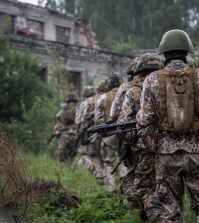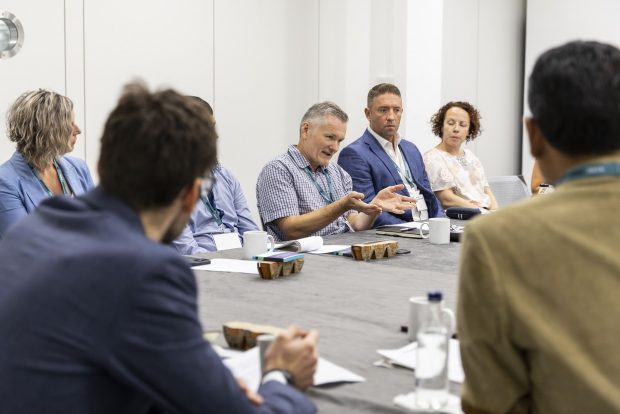New international centre to challenge state-led fake news and cyber attacks

An international centre to spearhead research into how to combat novel forms of ‘hybrid’ warfare is being set up in Helsinki.
The European Centre of Excellence for Countering Hybrid Threats will examine the relationship between conventional warfare and non-traditional forms of aggression, including cyber-attacks, false information campaigns and electoral interference.
It was launched last week at a ceremony in Helsinki, where a Memorandum of Understanding was signed by Finland and eight partner countries: Germany, France, Sweden, Latvia, Lithuania, Poland, the United Kingdom and the United States.
The move follows complaints by Finnish officials that Russia is using false information to mount a propaganda campaign against Finland. The Nordic state, which is militarily neutral and a member of the European Union, has an 800-mile border with Russia.
Finland’s minister for foreign affairs Timo Soini said at the launch that hybrid threats and tactics have become one of Europe’s most prominent security challenges, used as a tool in both power politics and military conflict.
“Coercive and subversive activity to confuse, complicate and hinder decision-making processes has increased,” he said. “Elections have been interfered with in manners that are not appropriate. During the ongoing migration crisis, we have seen elements of hybrid influencing by both state actors and non-state actors.”
The centre, which aims to raise awareness of hybrid threats and foster the resilience of European societies, will “engage in strategic level dialogue, research, training and consultations” and “conduct practical training exercises aimed at improving readiness to counter hybrid threats”, according to the Finnish government.
The first research projects, which include a study of hybrid threats as a “comprehensive phenomenon”, are due to start in the autumn. Finland will cover the project’s €1.5 million budget in the first year, and pay for buildings, equipment and some staff costs. In subsequent years, partner countries will jointly cover half the budget.
At its first meeting the centre’s steering board, which is made up of representatives of the nine countries, appointed the centre’s project manager Matti Saarelainen as interim director and Finnish Under-Secretary for EU Affairs Jori Arvonen as chair of the board. The board also agreed to appoint a high-level advisory group for the centre.
Other partner countries within the EU or NATO are expected to sign the MoU at a second ceremony in July. The EU’s European External Action Service and NATO have helped to set up the centre, but will not become members.
For up to date government news and international best practice follow us on Twitter @globegov
See also:
Germany announces new cyber security unit in wake of terror attacks
Government communications ‘struggling’ to keep up in digital age, says new report
Australian agency wins award for ‘big data’ prospecting tool






















the Pot calling the Kettle black. State-led Fake News!